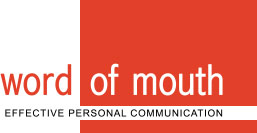What’s the ‘proper’ pronunciation?
August 22, 2018
Do you ever wonder if there is a ‘proper’ way to pronounce certain words? Consider the words ‘schedule’, ‘ceremony’ and ‘territory’ for example. Have you heard these words pronounced in a variety of ways? Does it irritate you that people pronounce them differently to you? And, is there really a ‘proper’ way to pronounce such words, or is it left to the discretion of the individual?:
Linguists, commentators and people interested in pronunciation have been arguing about the pronunciation of certain English words for an eternity. Our pronunciation and accent were mostly influenced by where in the world we grew up and how our friends spoke. Felicity Cox, an expert on the Australian accent at Macquarie University (and who incidentally lectured me in linguistics) believes friends have the biggest influence on your accent. Sharing an accent helps to show you are connected to your friends and interestingly kids are very important in creating new accents.
Some English words have two pronunciations, one more common in Britain and the other in America. Others have two pronunciations that these days have no particular use based on location (varied). Australian English pronunciation, whilst initially more closely linked to British pronunciation, is fast becoming a mix of both British and American – such is the dynamic nature of language!
So which is the proper pronunciation you ask? The good news is, you can take your pick between two different pronunciations – both are acceptable (to most!).
Let’s look more closely at some words clients often ask me how to pronounce properly. Certain pronunciations are more common in the UK or the US but with the globalisation of language you will find both in most locations, including Australia. Some pronunciations are more common than others around the English-speaking world e.g. for ‘often’ we have O-fuhn (more common) vs OFF-tuhn (less common) which does not necessarily mean the former is more ‘proper’.
| SCHEDULE | SHED-ule (UK) | SKED-ule (US) |
| DATA | DAH-tuh (UK) | DAY-tuh (US) |
| EITHER | EYE-thuh (varied) | EE-thuh (varied) |
| ROUTE | as in ‘boot’ (UK) | as in ‘how’ (US) |
| CLERK | as in ‘far’ (UK) | as in ‘lurk’ (US) |
| PLANT | as in ‘far’ (UK) | as in ‘ant’ (US) |
| ENVELOPE | EN-vuh-lope (varied) | ON-vuh-lope (varied) |
| ZEBRA | ZEB-ra (UK) | ZEE-bra (US) |
| AUNT | as in ‘ah’ (UK) | as in ‘ant (US) |
| VASE | as in ‘far’ (UK) | as in ‘say’ (US) |
| ANTI- | an-TEE (UK) | an-TIE (US) |
| MILITARY | MIL-uh-tree (UK) | MIL-uh-tair-ree (US) |
| FEBRUARY | FEB-roo-air-ree (vaired) | FEB-yuh-ree (varied) |
| OFTEN | OFF-uhn (varied) | OFF-tuhn (varied |
| PROGRESS | as in ‘no’ (UK) | as in ‘hot’ (US) |
| TERRITORY | TE-ruh-tree (UK) | TE-ruh-tor-ree (US) |
My advice to clients, is to choose if you want to lean more towards British or American pronunciation and use that which is more common in that region.
A book I can recommend if you want to read more about this topic is “You Say Potato – A Book About Accents” by renowned British linguist David Crystal and his actor son, Ben Crystal.
